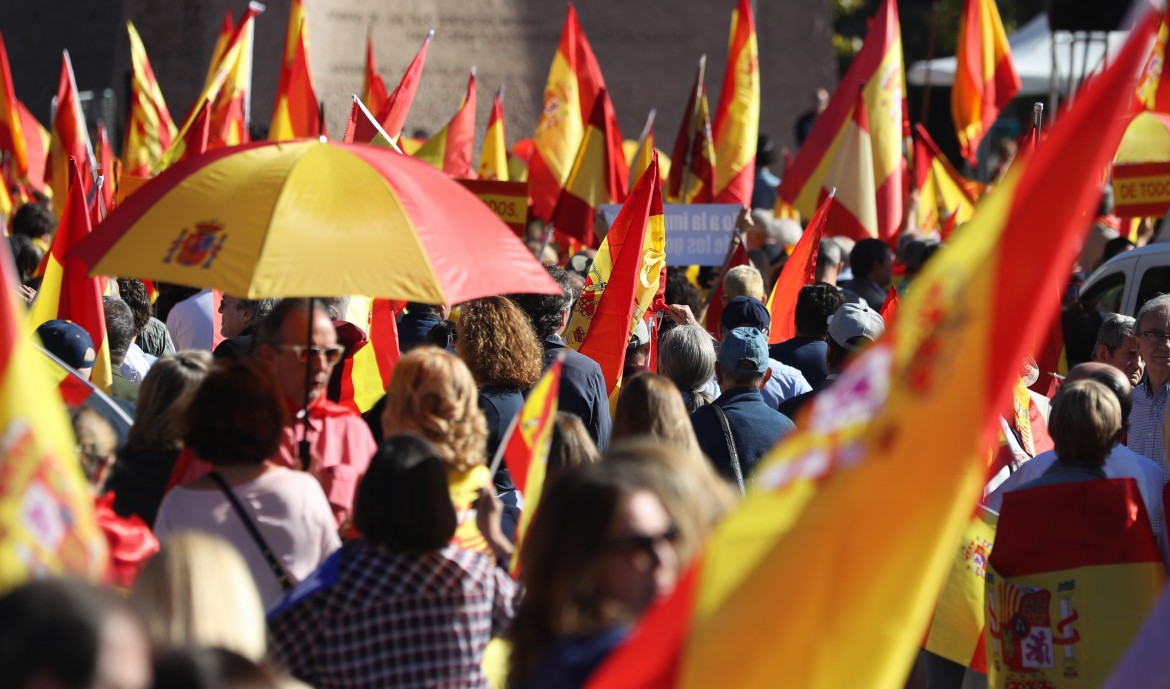Analysis
With new elections, separatists face a strategic dilemma
The first opinion polls will help signal whether the best strategy will be to boycott the Dec. 21 vote or use it as a legal referendum. Meanwhile, Podemos is divided.

What now? There is great confusion in the land of Spain, and no one can say whether this is a good thing or not. By the decision of the government in Madrid, regional elections will be held in Catalonia on Dec. 21, but the political uncertainty surrounding this date cannot be greater.
It is not yet known at the moment whether the pro-independence forces will participate or decide to be no-shows, and thus not recognize the legitimacy of the next parliament in Barcelona and the autonomous government that will result.
The debate is open, and, from what one can tell, both positions have weighty supporters: Artur Mas, Carles Puigdemont’s predecessor at the head of the Generalitat, seems to be pushing for participating with regular lists, while the anti-capitalists of the CUP have already announced that, for them, Dec. 21 will not be a day at the polling booths but a day for “a massive rebel paella.”
The first benchmark for the solidity of the secessionist front will be agreeing on a common line to follow. Much will depend on what the first polls show.
If the options favorable to breaking away from Spain have the apparent support of the majority, the separatist forces could turn the December vote into a plebiscite from which they can gain much greater political strength, especially in the eyes of international dialogue partners, starting with the European Union. It would be, in fact, a “Yes” for independence in a sort-of-referendum, now legal, which was not the case for the Oct. 1 vote.
The opposite outcome is equally plausible: The exceptional nature of this moment could draw people who usually don’t participate — and who are now scared of the separatist option — to go to the polls.
The calculations and projections will be important, but another determining factor will be what will happen in the coming days, in the face of possible disobedience by Puigdemont and the other members of the deposed Catalan executive and parliament.
The ingredients for further escalation are all there. The nationalist leader has already said he still considers himself to be fully in power, and the prosecutor general’s office has already announced that a criminal prosecution will be started against him in case he does not comply with the measures put in place by the government of Mariano Rajoy, with the authorization of the senate.
At this stage, the extremists of both parties are probably hoping for the same thing: Puigdemont under arrest. For some, it would represent the symbolic re-establishment of an order preferred by those nostalgic for the Franco regime. For others, the image of the “martyr for freedom” could be used politically.
But if we do not come to these scenarios (forerunners to a civil war), and if Dec. 21 ends up being “merely” the most important Catalan regional elections since the return of democracy 40 years ago, the configuration of forces in play will be decisive.
In the previous round of elections, the “Junts pel Sì” list brought together two parties as different as the center-right nationalists of Mas and Puigdemont’s PDeCat and Oriol Junqueras’s Republican Left of Catalonia.
In the days before the declaration of independence, great tensions were registered between the two groups, especially when it had seemed that Puigdemont wanted to call for early elections to avoid the application of Article 155.
Since that time, the leadership of the now-former president, accused of being weak and indecisive, is no longer as solid as it was.
If the “Junts pel Sì” electoral cartel holds; will the CUP also join it? It would be difficult but not impossible. A unified bloc would make the quasi-referendum character of the vote even more obvious and clear.
On the anti-separatist front, Ciudadanos is starting to establish itself as the strongest force. The party with the most problems is Podemos, divided between the national leadership that is against the idea of secession and the Catalan branch, which supports it.
It is not completely unrealistic to imagine that Albano Dante Fachin, the Catalan leader of Pablo Iglesias’ party, might end up switching to the CUP, while it will be mainly up to the charisma and intelligence of the mayor of Barcelona, Ada Colau, to better organize the election program for the federalist left and for the dialogue option, task that right now seems anything but easy.
Originally published at https://ilmanifesto.it/il-dilemma-degli-indipendentisti-alle-urne-unione-o-astensione/ on 2017-10-29
